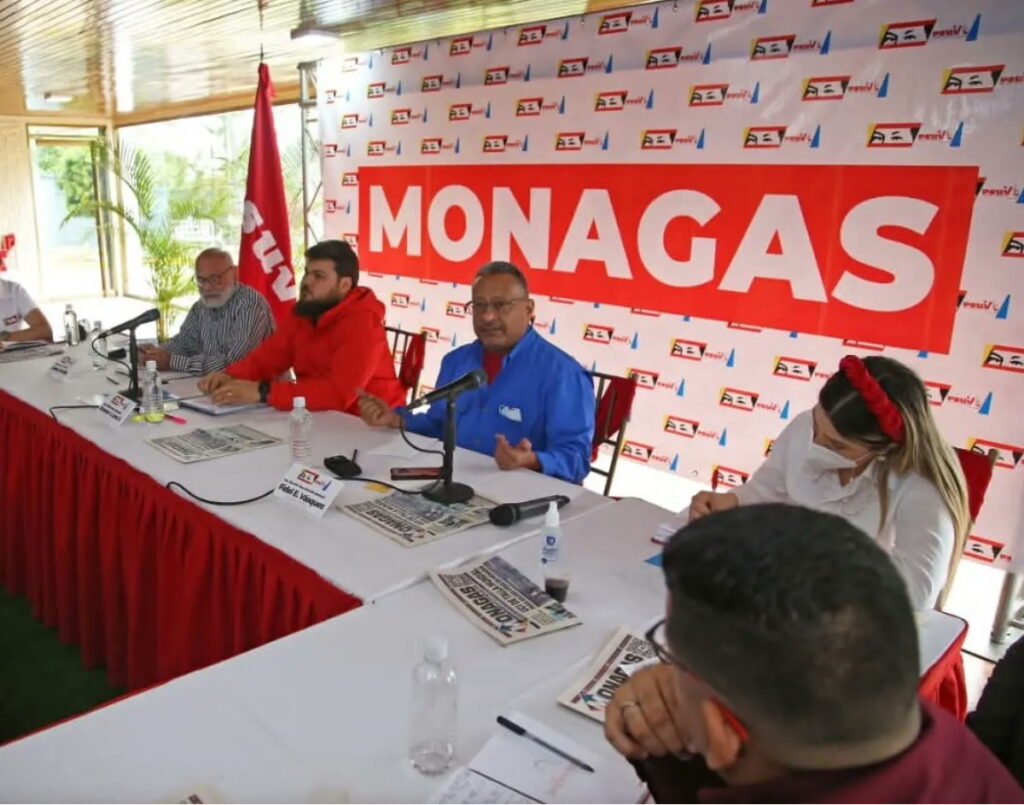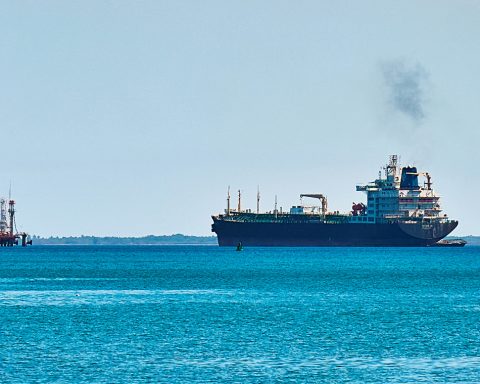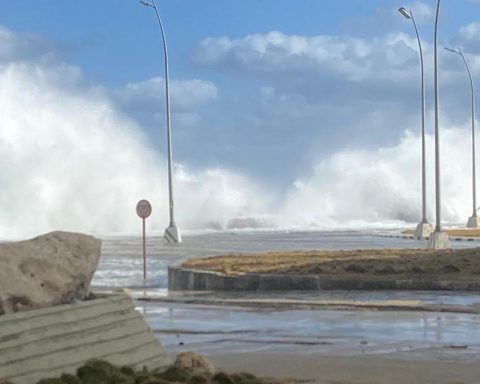Foreign Minister Santiago Cafiero assured that the main point of the claim for the sovereignty of the Malvinas Islands “is that Argentina raises the need to find a definitive and peaceful resolution to the dispute with the United Kingdom.”
To this end, Cafiero arrived in New York, to present this Thursday at the United Nations (UN) Decolonization Committee. the resumption of negotiations between Argentina and the United Kingdom for the dispute over the sovereignty of the Malvinas Islands
In an interview with Télam, The foreign minister remarked that, 40 years after the South Atlantic War, Argentina “will continue to persevere in its claim”and remarked that “time does not dilute the request for justice and sovereignty”.
Télam: Is the claim in line with what was discussed yesterday with the UN Secretary General, António Guterres, so that the negotiations for sovereignty over the Malvinas be resumed?
coffee: Argentina has a claim that is historical, that follows a timeline of many years ago. All Argentine diplomacy, with different intensities, has always emphasized it. The main thing is the need to find a final and peaceful resolution to the dispute we have with the United Kingdom over the Malvinas, South Sandwich Islands, South Georgia and the surrounding maritime areas. The challenge is to continue with a process of raising awareness that Argentina has been carrying out for many years. We seek the support of the international community. There are many processes of colonization that the United Nations has been solving. Of the 85 cases analyzed by the agency, only 17 remain unsolved.
T: Many of them from the UK.
C: Ten of them have direct implications for the United Kingdom, on these decolonization processes. So, effectively, the proposal made by Argentina is between historical and current, naturally. Today, 40 years after the South Atlantic conflict, what we propose is to persevere in the claim. Time does not dilute the demand for justice and sovereignty that we maintain.
T: This topic is dealt with first in the Decolonization Committee. Is the idea that it reaches the UN General Assembly?
C: They are preliminary steps. First, we are going to see what level of accompaniment we have in the Decolonization Committee. There are very important countries there, which represent groups and communities of countries, with which we will know where we stand. Clearly it is a process that has to grow. If we achieve a good accompaniment, we are going to generate a possible platform to advance in another type of instrumentation. Perhaps, one of the alternatives is to raise it in the General Assembly of the United Nations. But prior to that, what we must do is continue the dialogue.
T: You said that, with different intensity, Argentina maintained the claim of sovereignty. When did that posture lose intensity?
C: Well, I think that during the macrismo the Malvinas cause was trivialized. Although the diplomatic corps advanced in the right direction in the claims that continued to be made here, in the Decolonization Committee, or in multilateral organizations or forums, the truth is that the leadership of the Foreign Ministry had attitudes totally contrary to that line of worked. The Foradori-Duncan Pact (in the memoirs of former UK Foreign Minister Alan Duncan, he argued that then Deputy Foreign Minister Carlos Foradori “was drunk” when an agreement was signed in 2016 to lift Argentine sanctions on British companies operating in the waters surrounding the Malvinas) is an example of this. And the second is the trivialization that was made of the political power of Argentina at that time, basically everything that (former president Mauricio) Macri or (former minister) Patricia Bullrich have expressed regarding the Malvinas cause has been very derogatory. With respect to that, I always make the safeguard that there were men and women in Argentine diplomacy who did uphold these values, which clearly were not accompanied by political power.

T: UN Resolution 37/9 of 1982 recognized that the Malvinas War did not alter the validity or nature of the islands’ sovereignty dispute and to maintain the negotiations. How is it done to at least seat the United Kingdom at that table?
C: 189 years ago, in 1833, the United Kingdom usurped national territory, the Falkland Islands. From then on, Argentina exercised, from diplomatic tools, the claim. The United Kingdom first refused and then agreed to dialogue in 1965, following a General Assembly Resolution that instructed both nations to engage in bilateral negotiations. For 16 years this had its ups and downs, but it worked, somehow. It led to the raising of the two flags in Malvinas, to flights from the mainland to the islands. There began to be some connectivity. In February 1982, a few months before the war, the United Kingdom decided to freeze this rapprochement process and, shortly after, hostilities broke out. From then on, what the United Kingdom stated was that their main argument was the self-determination of peoples. They said that since the islanders want to belong to the United Kingdom and not to Argentina, that should be respected. That has already been ruled out by us and by the entire international community. We show that, before the usurpation of 1833, there were Argentine inhabitants and that the British settlers were implanted. That is why the principle of self-determination does not apply. On November 4, 1982, the United Nations issued Resolution 37/9, which indicates that the war did not produce a result or define the question of sovereignty, that the United Kingdom and Argentina should meet again to discuss it from a bilateral discussion, and gives the Secretary General the power of good offices to bring the parties back together, so that the process of bilateral discussion on sovereignty can be restarted. The UK never held to this. We demanded that the Secretary General, Guterres (at the meeting held yesterday), comply with Resolution 37/9.
T: And what was Guterres’ position?
C: He promised to advance the management, without guaranteeing success. But he offered himself, took Argentina’s claim and stated that he was going to make a call to the United Kingdom.
Blanco: “Malvinas is a State policy; all political sectors have to participate”
Senator Pablo Blanco (Together for Change-Tierra del Fuego) considered that the call by the national government to representatives of different sectors of the opposition to accompany the proposal that will be made this Thursday before the United Nations Decolonization Committee is due to the fact that “The Malvinas issue is a State policy”.
In this sense, in dialogue with Télam, Blanco stressed that, in these matters, “all political sectors have to participate, as they have been doing every year.”
“On repeated occasions I have participated in the province of Tierra del Fuego and there was always a call to all political spaces; it is a tradition that continues to be sustained,” added the national senator.
Regarding the repercussions that this mission could have in the UN, Blanco hopes “that there will be a ratification, as happens year after year in the Decolonization Committee, on the Argentine claim.”
Tomorrow, within the Decolonization Committee of the #UN the crack-free positioning of the #Argentina in claim of our sovereign rights.#C24 pic.twitter.com/ZtXa29an0g
– Pablo Daniel Blanco (@blancopabloda) June 22, 2022
“We are going to see what the foreign minister says (in his presentation this Thursday in the framework of the session of the UN Special Committee on Decolonization), but I have no doubt that the result will be a ratification of what after year it has been carried out” in this area.
Regarding the need for the United Kingdom to sit down at a negotiating table with Argentina over the sovereignty dispute over the Malvinas Islands, Blanco pointed out that “that is always raised, but Britain refuses to talk.”
“That means that they are not right because, anyone who had it, could calmly sit down; but that is the mechanics that they have,” added the opposition legislator.
For Blanco, the solution to the United Kingdom’s refusal “is to continue insisting until we can once again take it to the heart of the UN, not only in the Decolonization Committee but also in the General Assembly, to ratify what has been upheld year after year, which is nothing more or less than Resolution 2065″, which places the case of the Malvinas in a colonial situation by the British and invites both governments to continue without delay with the negotiations.


















